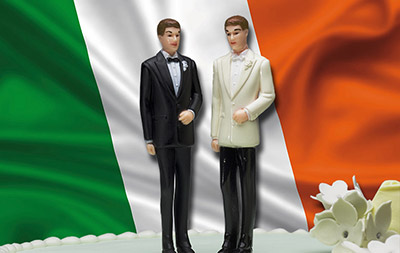Ireland: Marriage equality vote based on a “whim”
 Human Rights Watch has welcomed Ireland voting to legalise same-sex marriage but warned that a referendum is not the ideal way to do so.
Human Rights Watch has welcomed Ireland voting to legalise same-sex marriage but warned that a referendum is not the ideal way to do so.
On Friday, 62% of voters said “yes” to same-sex marriage, making Ireland the first nation to put the issue to a public vote.
Other countries have decided on marriage equality through their law-making processes or through the courts.
Ireland is also the first country to enshrine same-sex marriage rights in its Constitution by now defining marriage as being between “two persons without distinction as to their sex”.
This means that the recognition of same-sex marriage cannot be removed from the Constitution except through another referendum.
“The people of Ireland have expressed support for the fundamental right of same-sex couples to marry,” said Boris Dittrich, LGBT rights advocacy director at Human Rights Watch.
“The vote also indicates the majority of Ireland’s voters rejected the opposition’s fear-mongering tactics.”
Following the vote, Northern Ireland is now under increasing pressure to also allow its citizens to decide on same-sex marriage.
However, Human Rights Watch said this route may not be the best way to advance marriage equality as “it means recognition of a fundamental right of a minority” is “left to the whim of the majority”.
It has also meant that the personal lives of Ireland’s LGBT community “have been subjected to extraordinary intrusion, scrutiny, and public debate for months simply to secure a right already enjoyed by the majority of those living in Ireland”, explained the group.
Same-sex marriage was first legalised in the Netherlands in 2001 and is now allowed in 21 countries around the world. No societal problems have emerged that can be attributed to same-sex couples having the right to marry.
More than 70 peer-reviewed scholarly studies from around the world have also concluded that children of gay or lesbian parents fare no worse than other children, said the organisation.
Leave a Reply